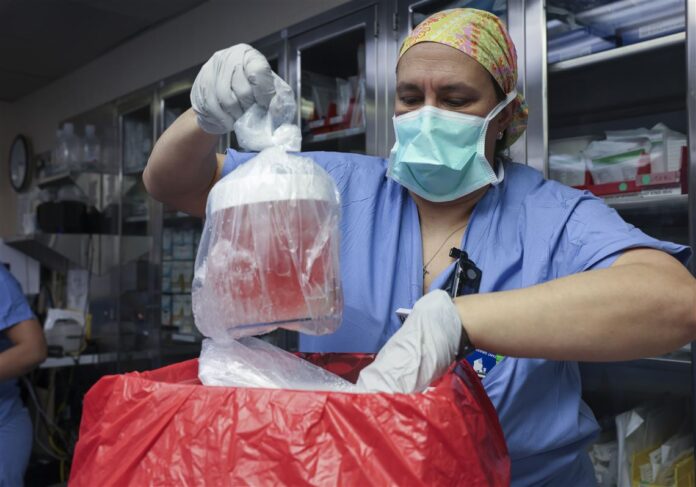Doctors at Massachusetts General Hospital announced on Thursday the groundbreaking achievement of performing the first-ever transplant of a genetically modified kidney from a pig into a living human. The historic four-hour surgery, conducted on Saturday, marked a significant milestone in medical history, paving the way for potentially revolutionary advances in transplantation.
The recipient of this pioneering procedure is Rick Slayman, a 62-year-old manager with the Massachusetts Department of Transportation, who had been battling end-stage kidney disease. Mr. Slayman’s condition had necessitated the use of dialysis, but his health had continued to decline, prompting doctors to explore alternative options.
The genetically modified pig kidney, meticulously prepared for transplantation, was seamlessly integrated into Mr. Slayman’s body during the intricate surgical procedure. Remarkably, the kidney immediately began functioning, eliciting applause from the medical team witnessing this historic moment.
Dr. Tatsuo Kawai, director of the Legorreta Center for Clinical Transplant Tolerance and the lead surgeon for the operation, described the pig organ as “the most beautiful kidney I have ever seen.” The emotional atmosphere in the operating room reflected the magnitude of this achievement, with doctors expressing gratitude to the patient, their colleagues, and biotech partners.
The success of this transplantation represents a significant step forward in addressing the critical shortage of organs for transplantation. With thousands of patients on waiting lists for life-saving organ transplants, the prospect of utilizing pig organs offers hope for many individuals in need.
While acknowledging the complexity of animal-to-human transplants and the challenges that lie ahead, experts emphasize the potential of xenotransplantation to revolutionize organ transplantation and save countless lives. Dr. Michael Curtis, CEO of eGenesis, the company behind the genetic modification of the pig kidney, hailed this breakthrough as the dawn of a new era in medicine, where organ supply no longer serves as a barrier to transplantation.
As the medical community celebrates this historic achievement, the legacy of Mr. Slayman, who bravely volunteered for this pioneering procedure, will endure as a testament to the power of human resilience, innovation, and compassion in the face of adversity.
What is Pig Kidney Transplant
A pig kidney transplant, also known as xenotransplantation, involves the transplantation of a kidney from a genetically modified pig into a human recipient. This procedure is a groundbreaking advancement in the field of organ transplantation, offering a potential solution to the critical shortage of human organs available for transplantation. By utilizing organs from pigs, which have anatomical similarities to human organs, researchers aim to address the demand for life-saving transplants and improve patient outcomes. However, pig kidney transplantation involves complex medical and ethical considerations, including the risk of immune rejection and the need for careful genetic modification to ensure compatibility and safety for human recipients.



